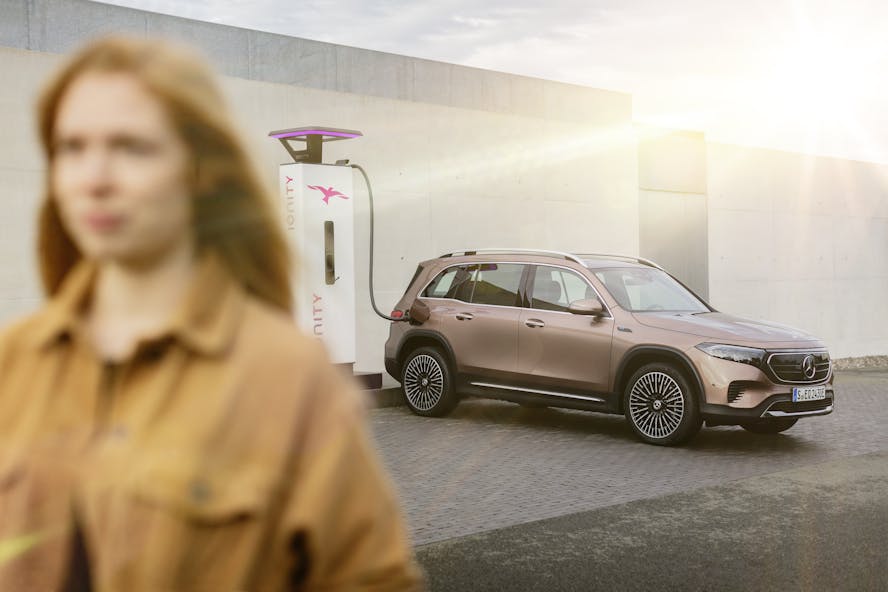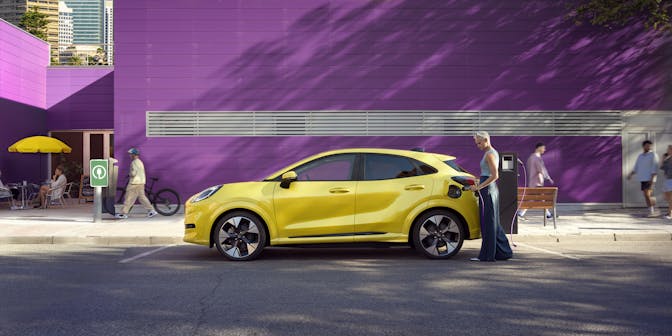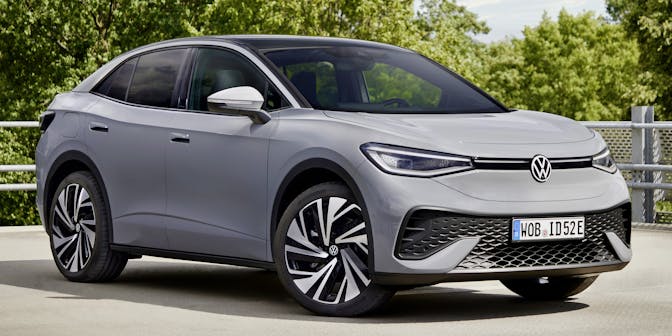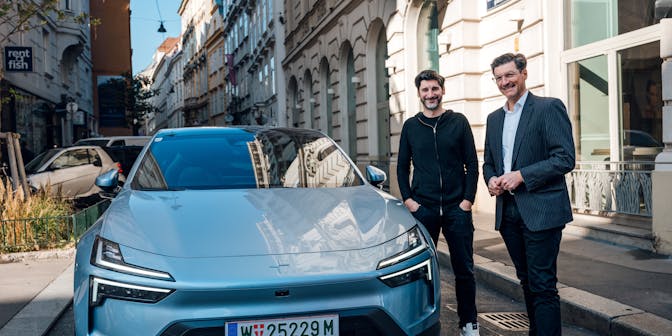The 5 biggest electric vehicle misconceptions
Stop! Forget all the myths and misconceptions you may have heard about EVs as we uncover the truth in their reliability and functionality.
If you’re thinking of switching to a pure electric vehicle, you’ve probably heard plenty of myths attempting to persuade you otherwise. While EVs have been on the UK market for over a decade now, many people are still not entirely convinced on their reliability or viability. With that in mind, we’re going to explore the top five EV misconceptions.

1. Electric vehicles can’t travel as far as we need!
One of the biggest misconceptions about electric vehicles is that they are still extremely limited by how far they can travel. Early on in the EV days, cars might have been limited to 100 miles maximum. Today, that’s not the case.
There are now plenty of EV models that can travel over 200 miles before needing to be charged. As green technology advances, as will the distance electric vehicles can travel. What’s more is the latest Mercedes EQE and Mercedes EQS models can travel nearly 400 miles before needing to be recharged. And long vehicle ranges aren't exclusively available on high end models either, EVs like the MG4 and Kia Niro EV prove that.
Plus, the likelihood of needing to travel the length of the UK in one stop is pretty slim. Did you know that 99% of journeys in England are under 100 miles? With this statistic, pretty much every electric car on the market would meet 99% of drivers' needs.
Battery prices for electric vehicles have been continuously dropping as more EVs are designed. Today, a battery costs little more than a tenth of what one did back in 2010. With these prices plummeting, we expect to see more EVs available with greater range.
2. Charging an EV is too difficult and takes too long!
Along with how far electric vehicles can travel, there are plenty of misconceptions surrounding how, when and where you can charge an electric vehicle. The first being that there aren’t enough public charge points in the UK.
However, according to Zap Map there are now over 33,000 public charge points available across the UK. Over 6,000 of these are either rapid or ultra-rapid charging stations, which allow EVs to charge much quicker while on the road. In comparison, there are currently 8,378 fuel stations across the UK and this number is decreasing year-on-year.
If that’s not enough, a recent study found that the UK now has more rapid chargers every 100 miles of road than any country in Europe. The debunks any claims that all public charge points are in big cities, leaving rural areas without.
Of course, we will need more charge points across the UK if we are to meet our net zero targets by 2050. Thankfully, the Government and local authorities are supporting the installation of charge points on the road, at work and at home. On average, over 500 new EV chargers are being installed along UK roads every month - of which over 100 are either rapid or ultra-rapid chargers.
3. It takes way too long to charge an electric car!
The reality is that most EV drivers will charge their vehicles at home or near their house overnight. This means that unless you’re using the electric car constantly for 24 hours, it’s likely you’ll be able to fully charge it overnight without hassle.
How long it takes to charge an electric vehicle depends on multiple factors, including the model of car and the charging facilities available. Let’s take the Volkswagen ID.4 as an example, which comes with rapid charging abilities. The ID.4 can charge from 20% - 80% in 6 hours using a 7kW home charger. Plus on the road, using a 50kW rapid charger, it can charge from 15% - 80% in just over an hour. And with the growing network of Ultra-Rapid chargers springing up around the UK, the ID.4 can go from 10% to 80% capacity in just 30 minutes.
4. Electric vehicles are too expensive!
It’s true that electric vehicles do cost more to buy outright than conventional vehicles at the moment. However, we imagine this cost difference will decrease as more all-electric models enter the market.
As electric vehicles are now costing less to make, forecasts are showing that electric vehicles could be the same price to purchase as conventional cars by the late 2020s. What’s more is EV drivers benefit from huge savings on running and maintenance costs. Depending on your electricity tariff, you can run your own electric vehicle for as little as 1p per mile.
And we might be slightly biased, given our track record of leasing electric vehicles, but personal and business contract hire provide a highly affordable way to get behind the wheel of a new EV.
5. EV batteries need replacing loads!
Once again, not true. In reality, there are over 10 million electric vehicles on the road globally and no evidence to suggest their battery lifespans are shorter than petrol or diesel vehicles.
When buying an electric vehicle new, most of them will come with a battery warranty of around 8 years or 100,000 miles. However, we expect batteries will last longer than anticipated, especially with improvements to battery technology and infrastructure.
The UK Government is committed to supporting the introduction of electric vehicles. They have committed £318 million into the Faraday Battery Challenge which supports research and development of EV batteries lifespan.
If you're buying a second hand electric vehicle then you should check whether the vehicle has had a battery change or not. If it has, then it’s unlikely you’ll have to replace it again the whole time you own it.
And even when an EV battery does need to be replaced there are now lots of second life opportunities for the batteries to continue to be useful for many, many years into the future, such as Connect Energy which re-use batteries in a variety of applications.
Some of our great electric car lease offers
Cupra Born 169kW e-Boost V1 59kWh 5dr Auto
- £2,098.85 Initial rental (ex. VAT)
- £2,518.62 Initial rental (inc. VAT)
- 48 Month term
- 5000 Annual mileage
- Subject to status and conditions + arrangement fee

Ford Puma Gen-E 123kW Select 43kWh 5dr Auto
- £2,147.79 Initial rental (ex. VAT)
- £2,577.34 Initial rental (inc. VAT)
- 48 Month term
- 5000 Annual mileage
- Subject to status and conditions + arrangement fee

Volkswagen ID.5 210kW Match Pro 77kWh 5dr Auto
- £2,722.90 Initial rental (ex. VAT)
- £3,267.48 Initial rental (inc. VAT)
- 48 Month term
- 5000 Annual mileage
- Subject to status and conditions + arrangement fee

More EV guides
Understanding Vehicle Excise Duty (VED) or "Road Tax" for EVs

How to save money on a new car with Salary Sacrifice
How is salary sacrifice calculated?
